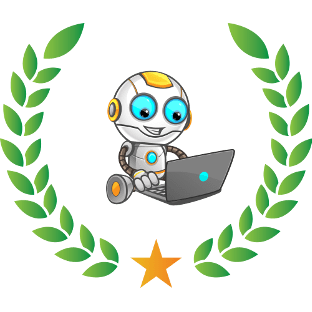https://www.europesays.com/1965753/ How Swiss federalism is helping the rise of a new digital right #article #BeatDemocracy #Cantons #DigitalDemocracy #HumanRights #Nachrichten #Nouvelles #schweiz #Suisse #switzerland #votes
Frühere Suchanfragen
Suchoptionen
#digitaldemocracy
What a fantastic two days at the OECD Bootcamp in Lisbon! The @decidim team supported public orgs in designing impactful processes, leveraging emerging tech to truly empower citizen participation. #CivicTech #DigitalDemocracy
**1/8** **Reimagining Democracy**
To counter techno-fascism, we need decentralized, participatory models. Learn from digital movement parties (e.g., Italy’s Five Star Movement) but avoid elite capture. Combine online tools with local assemblies for grassroots power. #DigitalDemocracy #AntiFascism
"The #revolution toward #digitaldemocracy begins with individual choices. Every person who moves to #decentralized platforms weakens the grip of tech monopolies. Every contribution to open source projects builds alternative infrastructure.
But individual action is not, is never enough.
We need political movements that understand the connection between digital and democratic power. We need communities dedicated to practicing #digitaldistributism in their own operations."
https://www.joanwestenberg.com/the-revolution-will-be-decentralized/
#qualipost
(3) Kritiker fragen: Ist ein solches Modell wirtschaftlich tragfähig? Die Initiative ist überzeugt, dass es Zeit für einen Systemwandel ist – für die Nutzer*innen und für die Zukunft der digitalen Kommunikation.
Was denkt ihr? Kann ein Social-Media-Neuanfang gelingen? Ist #Mastodon bereits so ein „Neuanfang“?
#qualipost
(2) Warum ist das wichtig? Social-Media-Riesen kontrollieren derzeit, was wir sehen, wie wir interagieren und welche Inhalte Reichweite erhalten – oft zum eigenen Vorteil. „Free Our Feeds“ fordert eine Alternative, die Transparenz, Fairness und echte Demokratie fördert.
#qualipost
(1) Die Initiative „Free Our Feeds“ setzt sich für eine Revolution im digitalen Raum ein: Plattformen ohne die Kontrolle von Großkonzernen oder Milliardären. Ziel ist es, Räume zu schaffen, die frei sind von Algorithmen, die Inhalte manipulieren, und von rein kommerziellen Interessen geprägt sind.
Yep – as tech leaders gain influence in politics
It's crucial to remember that innovation needs checks & balances. Power in the hands of a few isn’t progress; it’s a step backward.
#platformaccountability #TechAndPower #ResponsibleInnovation #DigitalDemocracy https://www.theguardian.com/commentisfree/2024/nov/11/a-new-era-dawns-americas-tech-bros-now-strut-their-stuff-in-the-corridors-of-power
Have you ever been in a book club / #reading_group / seminar (with open education principles)? An essential part is coming up with a Syllabus. I am looking for tools for a democratic syllabus, that can be crafted together. Somehow like @zotero + @LemmyDev
I want reading group members (or students) to:
- propose literature (ideally just through a DOI)
- rate proposals (up and down vote)
- comment literature proposals
- rate comments
We are leaving X.
It has been a long due decision. Over a year ago, as X’s degradation became clear, we opened this Mastodon account to transition our followers gradually. Despite our consistent posting, building an active, engaged community on Mastodon has proven challenging, and we continue to work towards a vibrant space for public dialogue.
X has become a hub for rising hate speech, misinformation, and toxic behavior, eroding its capacity to support constructive discourse and democratic values. These developments strike at the heart of what FIDE stands for, and we can no longer endorse a platform that disregards the principles of respectful, inclusive dialogue.
With this announcement, we call on others to support online spaces that uphold democratic values—platforms where respect, truth, and inclusivity prevail. Let’s build communities that prioritize the integrity of information and open, diverse engagement.
#AI #DigitalDemocracy #Misinformation #Propaganda: "This chapter explores the influence of Artificial Intelligence (AI) on digital democracy, focusing on four main areas: citizenship, participation, representation, and the public sphere. It traces the evolution from electronic to virtual and network democracy, underscoring how each stage has broadened democratic engagement through technology. Focusing on digital citizenship, the chapter examines how AI can improve online engagement while posing privacy risks and fostering identity stereotyping. Regarding political participation, it highlights AI's dual role in mobilising civic actions and spreading misinformation. Regarding representation, AI's involvement in electoral processes can enhance voter registration, e-voting, and the efficiency of result tabulation but raises concerns regarding privacy and public trust. Also, AI's predictive capabilities shift the dynamics of political competition, posing ethical questions about manipulation and the legitimacy of democracy. Finally, the chapter examines how integrating AI and digital technologies can facilitate democratic political advocacy and personalised communication. However, this also comes with higher risks of misinformation and targeted propaganda."
Taiwan has adopted tools of digital democracy that other countries can learn from
"As an open project, #vTaiwan attracts people from multiple disciplines including law makers, public servants, developers, designers, writers, researchers, journalists, film makers and much more.
The #vTaiwan process consists of four successive stages - proposal, opinion, reflection and legislation - supported by a selection of colloborative #opensource engagement tools."
#digitaldemocracy
https://info.vtaiwan.tw/#three
"#Taiwan might not seem like the most obvious place for a pioneering exercise in #digitaldemocracy. The island held its 1st direct presidential election in 1996…But…Taiwanese have a history of taking to the streets to push back against heavy-handed government. In Taiwan’s democratic era, it was a protest 4 yrs ago that planted the seed for this innovative political experiment."
https://www.technologyreview.com/2018/08/21/240284/the-simple-but-ingenious-system-taiwan-uses-to-crowdsource-its-laws/
Working with frontline communities to use technology to defend their rights and fight climate change, Digital Democracy is seeking a React Native Developer to join its remote team. Learn more on #OSJH https://opensourcejobhub.com/company/961/ #ReactNative #AppDeveloper #RemoteWork #DigitalDemocracy #OpenSource #career #jobs
Our world is dominated by #Dataopolies - large tech entities controlling massive data pools, influencing democracy & individual freedom
This article explores how decentralized #Web3 technologies can challenge this status quo
#Decentralization #DigitalDemocracy #AI #OpenAccess
https://www.mdpi.com/2504-2289/8/3/26
@digitalhumanities @digigeolab @DigitalEU @DialoguesHG @geography @anthropology @economics @sociology @politicalscience @politicaltheory
Thrilled to share my latest article in journal '#BigData and #CognitiveComputing' #Q1 #ImpactFactor 3.7 #CiteScore 4.9!
"Democratic Erosion of #DataOpolies:
#Decentralized #Web3 Technological Paradigm Shift Amidst #AI Disruption"
Dive into the future of #DataSovereignty #DigitalDemocracy
https://mdpi.com/2504-2289/8/3/26
@digitalhumanities @digigeolab @DigitalEU @DialoguesHG @geography @anthropology @economics @sociology @politicalscience @politicaltheory
Setting out a long-term scientific agenda for digital democracy.
I hope this paper sparks lots of discussion, new collaborations and new research
Thread on AI and Big Tech Dominance
Big Tech's grip on AI is undeniable. Companies like Microsoft, Amazon, and Google are not just tech giants; they're the backbone of AI development and deployment. Most AI startups and labs depend on their infrastructure.
This concentration of power in AI isn't just a market issue; it's a democratic one. Relying on a few corporate giants for essential AI infrastructure raises concerns about democracy, culture, and individual agency.
Remember Cambridge Analytica? It's one example of the risks posed by concentrated AI power. This setup creates vulnerabilities and systemic risks, as noted by SEC chair Gary Gensler.
Even open-source AI initiatives, like Meta's LLaMA-2 or Eleuther's Pythia, can't fully break free from industry concentration. The term "open-source AI" is complex and varied in its meaning.
The AI industry's business model heavily relies on cloud profits for Big Tech. AI services are often bundled with cloud infrastructure, reflecting a dependency that's hard to break.
Regulation could be a solution, but it often ends up reinforcing Big Tech's power. Microsoft's recent £2.5 billion investment in UK cloud infrastructure is a prime example of this dynamic.
Big Tech companies are using their economic and political clout to maintain dominance. From lobbying efforts to strategic investments, they're actively shaping AI policies and regulations.
AI's future is heavily influenced by Big Tech's infrastructure and policy maneuvers. This dominance poses challenges for market competition, democratic values, and the shaping of AI's ethical and societal impacts.
#AI #BigTech #TechnologyPolicy #DigitalDemocracy
https://www.technologyreview.com/2023/12/05/1084393/make-no-mistake-ai-is-owned-by-big-tech/


 Anoxinon e.V.
Anoxinon e.V. 